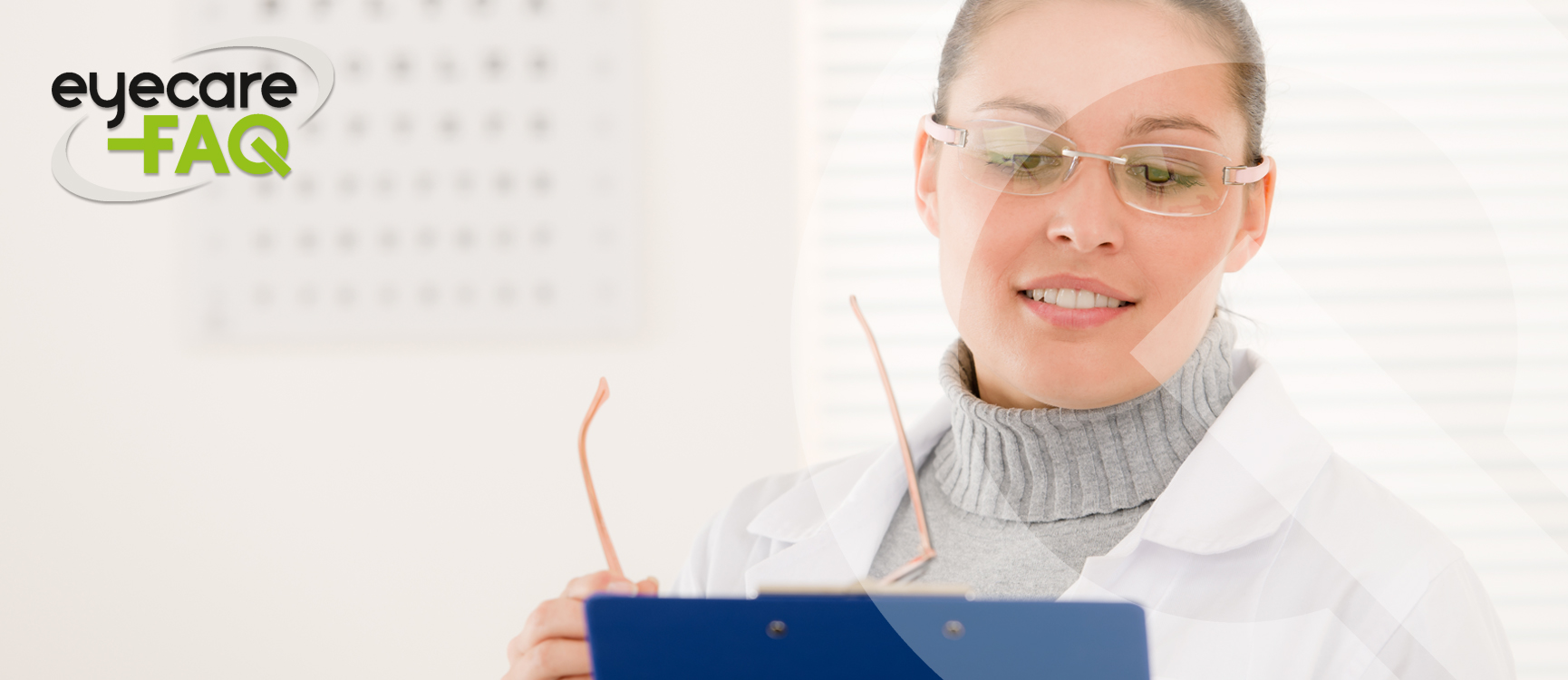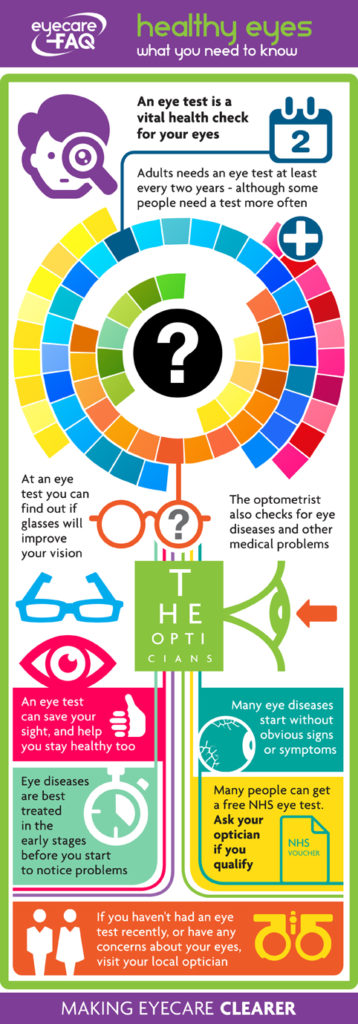What is an eye test?
An eye test is a vital health check for your eyes. Every adult needs an eye test every two years, and some people may be advised to have a test more often.
During the eye test the optometrist checks if you need glasses, but they do much more than that too. When you have your eyes examined, the optometrist checks for signs of eye diseases like glaucoma that you might not be aware that you are developing. They can also see possible signs of conditions like high blood pressure and diabetes when they check the eye.
Many of these conditions are treatable, but it is best to get them detected before they start causing problems. An eye test can save your sight, and help you stay healthy too.
How often should I get my eyes tested?
Optometrists recommend that most people should get their eyes tested every two years. For some people, it is important to have an eye test more frequently. Here are a few groups that might be recommended to come back sooner:
What happens during an eye test?
Your history – the optometrist or a trained member of the team will ask about your medical history, medication and whether anyone in your family has eye problems. You should tell the optometrist or their colleague about any difficulties you have with focusing, headaches or other problems.
Checking your eye health – the optometrist might shine a bright light close to your eyes to check the inside and outside of the eyes for signs of disease. Alternatively, they look through a special lens which helps give a clear, magnified view of the back of the eye called the retina.
Checking your vision – the optometrist will ask you to read letters on a chart and use different lenses to see how much your vision can be improved for distant and near objects.
Checking how your eyes work together – the optometrist will ask you to look at a letter or object and will then cover one eye at a time to see how well your eyes work together.
Checking the pressure inside your eyes – the front of your eye is filled with fluid, and sometimes the pressure of the fluid rises which can cause sight loss. The optometrist should check the pressure of your eyes at every test once you reach the age of 40. This can be done with a machine that blows a little puff of air on the eye or by resting a small probe on the eye.
Checking your field of vision – the optometrist or a trained colleague will check how well you can see at the centre and the edge of your field of vision using a test that flashes faint spots of light.
At the end of the test – occasionally, the optometrist may ask you to come back for a repeat test, after using some eye drops. These drops relax the muscles that control your pupils and let the optometrist see more clearly inside your eyes to get a better view. The drops may sting at first and can cause blurred vision for a short while after the test has finished. If it is a bright day you may want to bring sunglasses with you as you may find the drops make your eyes more sensitive to glare for an hour or so. Do ask someone else to drive you home after eye drops like this as it not recommended to drive for up to three to four hours.
Do I have to get my glasses from the same optician who carried out the eye test?
You can choose whether you get your spectacles from the practice where you had your eyes tested, or whether you would like to look elsewhere. Shopping around can save you money, but staying with the same practice can make it easier if any problems arise.
Who can have a free NHS eye test?
You qualify for a free NHS-funded sight test if
- you’re aged under 16
- you’re aged 16, 17 or 18 and are in full-time education
- you’re aged 60 or over
- you’re registered as partially sighted (sight impaired) or blind (severely sight impaired)
- you’ve been diagnosed with diabetes or glaucoma
- you’re 40 or over, and your mother, father, brother, sister, son or daughter has been diagnosed with glaucoma
- you’ve been advised by an ophthalmologist (eye doctor) that you’re at risk of glaucoma
- you’re a prisoner on leave from prison
- you’re eligible for an NHS complex lens voucher – your optometrist (optician) can advise you about your entitlement
You’re also entitled to a free NHS sight test if you:
- get Income Support
- get Income-based Jobseeker’s Allowance
- get Income-based Employment and Support Allowance
- get Pension Credit Guarantee Credit
- get tax credits and meet the criteria
- get Universal Credit and meet the criteria
- have a low income and are named on a valid NHS HC2 certificate for full help with health cost
People named on an NHS certificate for partial help with health costs (HC3) may also get help.
Find out more about the NHS funded sight test in England here.
Find out more about the NHS funded sight test in Scotland here.
Find out more about the NHS funded sight test in Wales here.
Find out more about the NHS funded sight test in Northern Ireland here.

